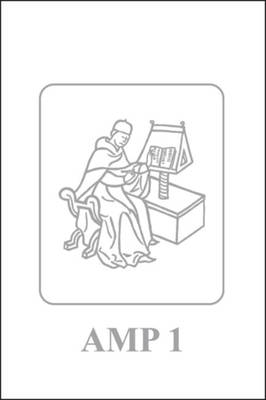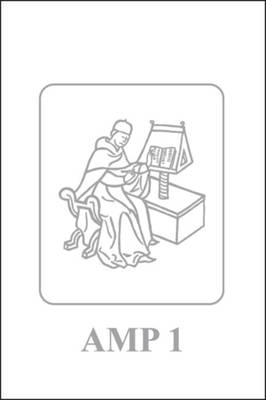
- Retrait gratuit dans votre magasin Club
- 7.000.000 titres dans notre catalogue
- Payer en toute sécurité
- Toujours un magasin près de chez vous
- Retrait gratuit dans votre magasin Club
- 7.000.000 titres dans notre catalogue
- Payer en toute sécurité
- Toujours un magasin près de chez vous
The Eucharist in Theology and Philosophy
The Wanderstudent of 1425 Revived in Virtual Reality in 2000?-Towards a European Virtual University
Description
The present volume has been built up around fifteen papers presented at an international conference co-organised by the Department of Medieval Studies of the Central European University, Budapest, the Centre d'Etude des Religions du livre, Paris, the De Wulf-Mansion Centre at the Katholieke Universiteit Leuven and the Benedictine Abbey of Tihany, Hungary. The conference was convened to discuss the general conceptual, doctrinal and - broadly speaking - theological and philosophical aspects of the developments concerning the Eucharistic doctrines of the Christian Churches, not just the Western ones, but the Byzantino-Slavic and Oriental ones, too.
When organizing the final shape of the volume at hand, the editors were eager to get contributions with a wide divergence of perspectives. In this way, the so-called "Nestorian Controversy" and the aftermath of Chalcedon received great emphasis, their problems being several times approached in the Patristic section of this book, by authors who in no way agree in its evaluation, but rather, for a long while, have been in debate with each other. Similar is the case with the crucial debates in the medieval theology of the Eucharist, be it Eastern or Western.
Even more tangibly, the great questions of a "symbolist" or "realist" interpretation of the presence of Christ in the bread and the wine, or, once the doctrine of the "real presence" had been affirmed, its modalities, such as "transsubstantiation" or "transformation", or the question of what happens to the bread and the wine, and when, during the liturgical celebration, in order that they might become the real body and blood of Christ, are treated over and over in these contributions just as they have been treated over and over during the intellectual history under review.
This recurrence of the same or similar doctrinal problems in diverse circumstances, envisaged from different theological, philosophical or historical perspectives, is one of the factors that give this volume its unity.
Spécifications
Parties prenantes
- Editeur:
Contenu
- Nombre de pages :
- 474
- Langue:
- Anglais
- Collection :
Caractéristiques
- EAN:
- 9789058674999
- Date de parution :
- 15-02-05
- Format:
- Livre relié
- Format numérique:
- Genaaid
- Dimensions :
- 165 mm x 241 mm
- Poids :
- 857 g






